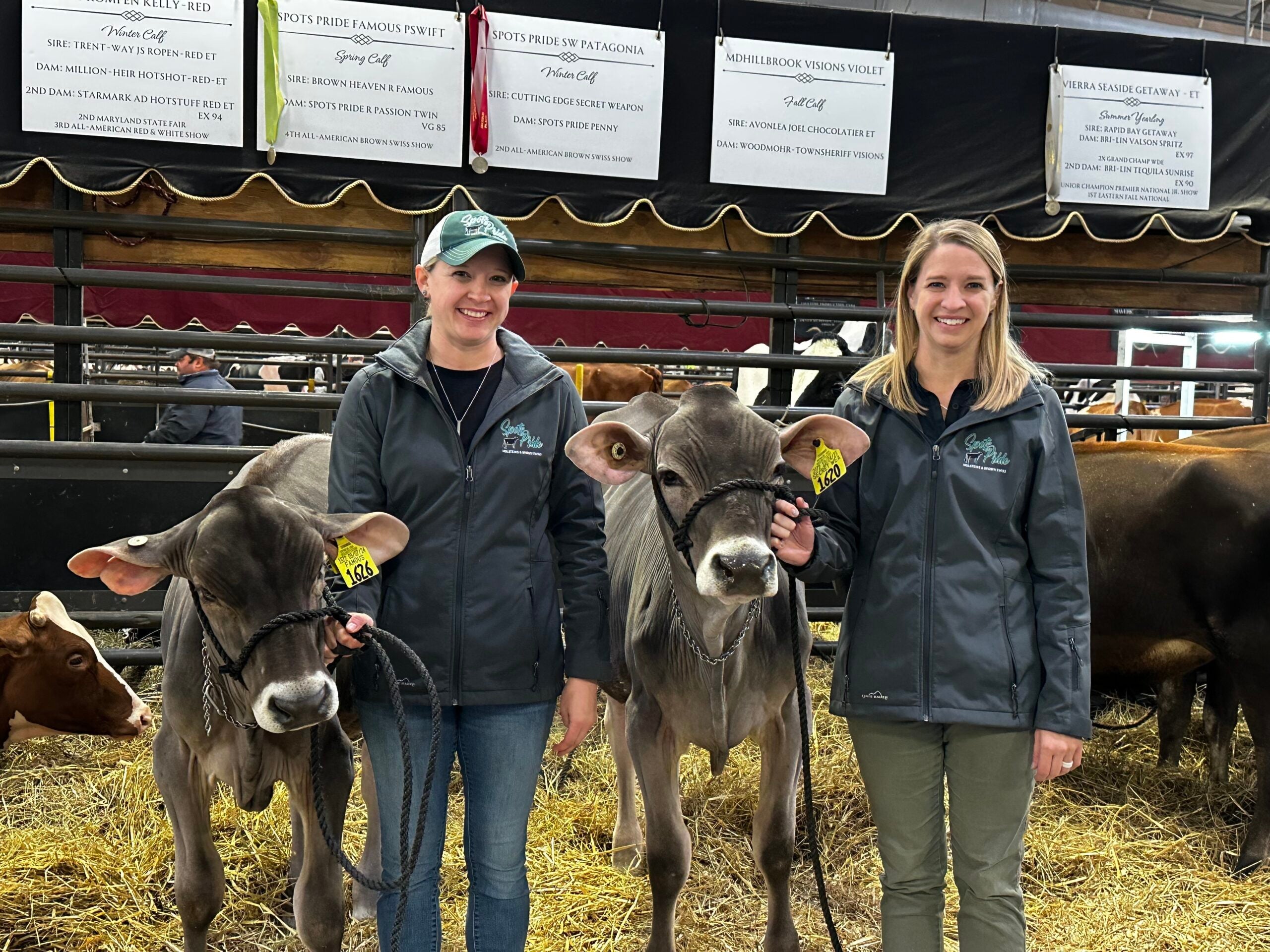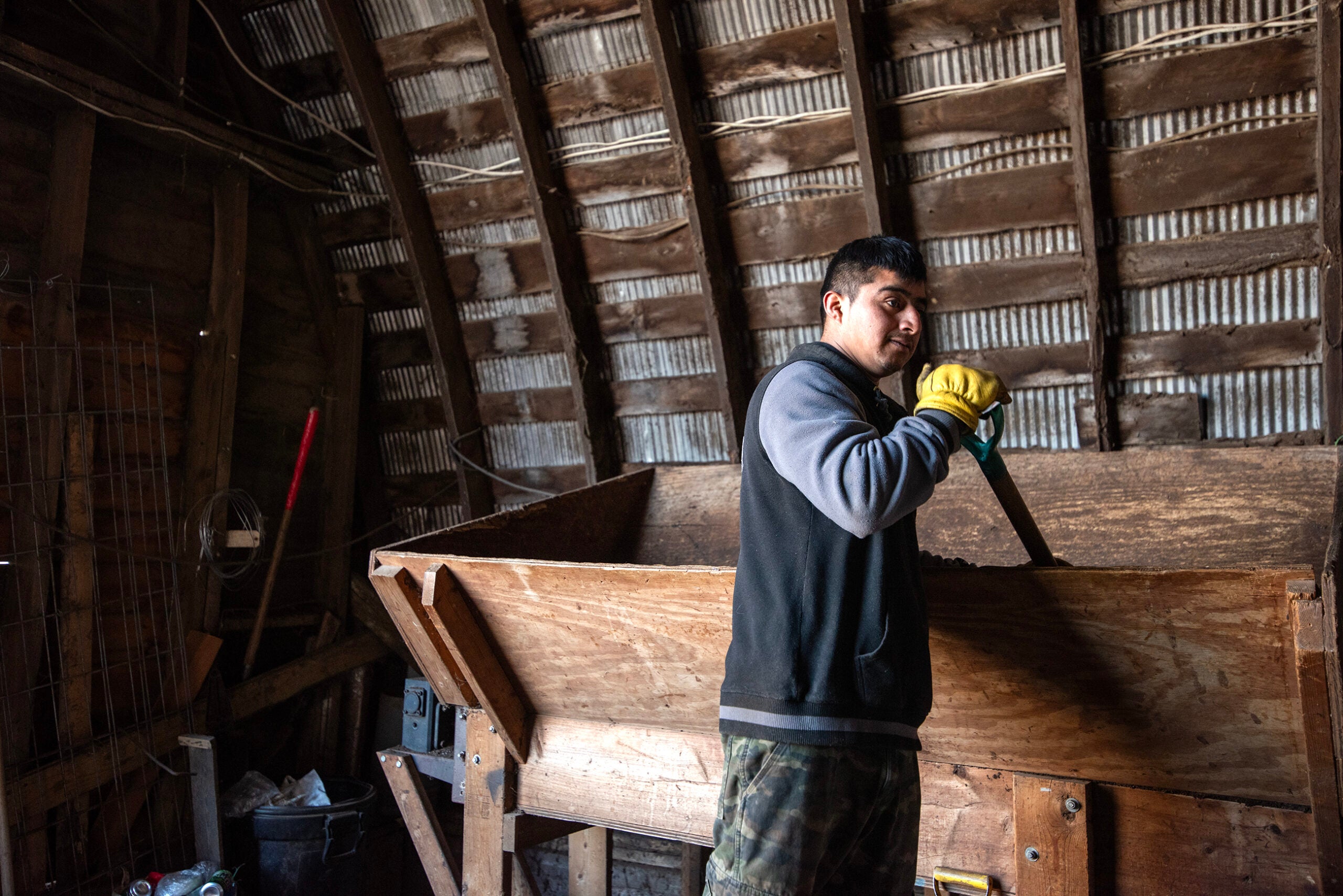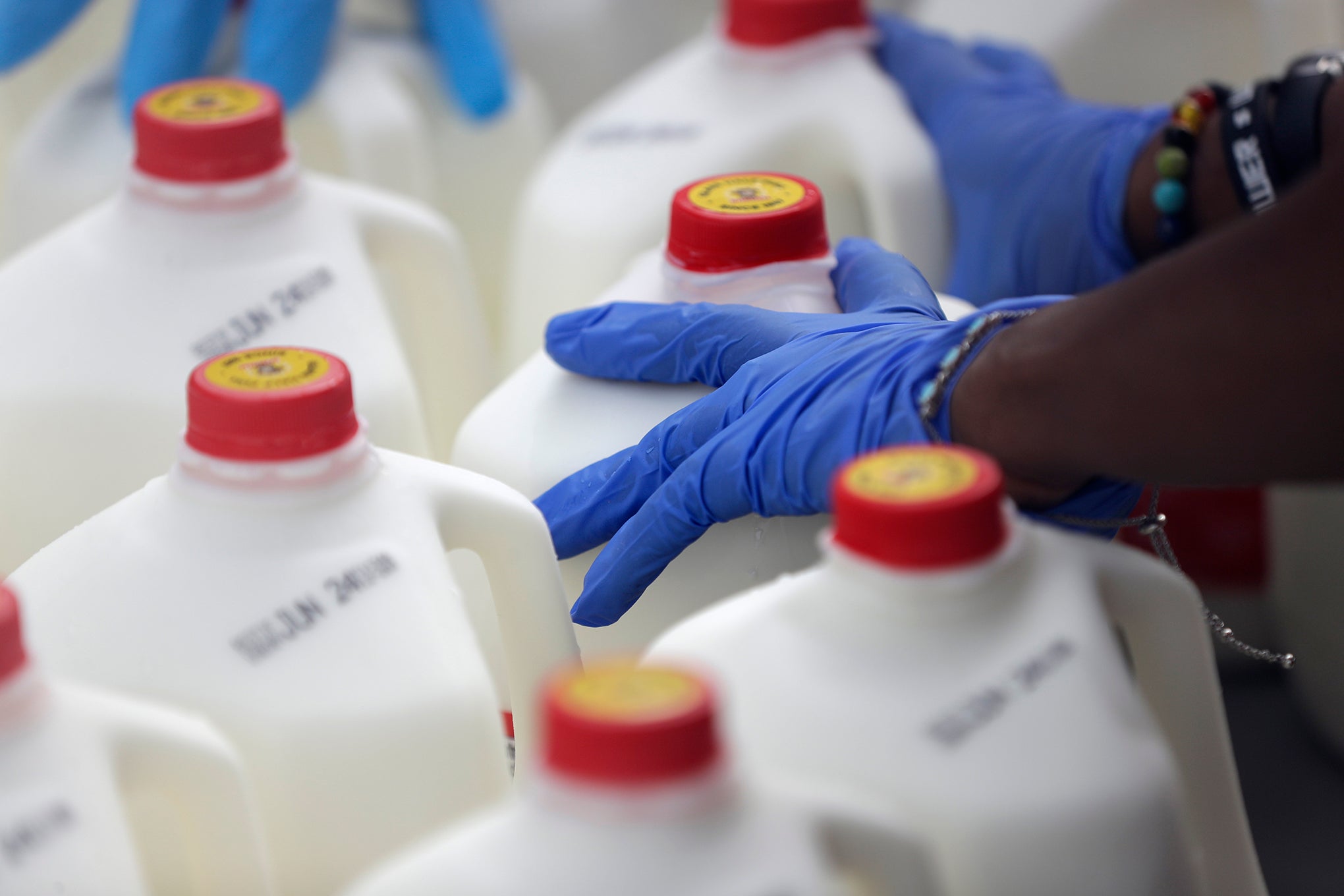For Emily Yeiser Stepp, the week of the World Dairy Expo in Madison ranks right up there with Christmas as one of her favorite times of the year.
Stepp has been coming to Wisconsin for the expo — the biggest trade show dedicated to dairy in the world — since 2005 as a cattle exhibitor and a judge.
This week, her family’s pair of Brown Swiss calves made the trip with them to compete at the expo. “PSwift” and “Patagonia” each earned top-10 finishes among the roughly 3,000 head of cattle from the United States and Canada assembled on the Alliant Center grounds.
Stay informed on the latest news
Sign up for WPR’s email newsletter.
Stepp also serves on the board of the expo and is a leader with the National Milk Producers Federation. The week is an opportunity to represent her organization and meet with stakeholders up and down the dairy supply chain.
She talked with WPR’s “Wisconsin Today” about the event and some challenges facing the dairy industry, including threats like bird flu being found in cattle and the Farm Bill potentially expiring next week.

The following interview was edited for brevity and clarity.
Rob Ferrett: My understanding from talking to some dairy experts here in Wisconsin is that one of the concerns about spread of bird flu is via milking machines. What kind of things are you hearing talked about at the expo to make sure that biosecurity is there — not just at the expo, but in general, to make sure this disease doesn’t spread?
Emily Yeiser Stepp: We have put in biosecurity protocols here, particularly for those milking avenues and co-mingling of different herds within the grounds itself. We have a number of educational sessions as well.
Actually tomorrow, the National Milk Producers Federation and the National Dairy Farm Program are having a panel of our key epidemiologists and veterinarians, as well as a farmer that has lived through the experience of having H5N1 within his herd, to really elevate the awareness and provide some key insights to attendees here.
RF: We’re already in year six of the five-year Farm Bill passed back in 2018, with questions about whether we’ll get a new one or extend an old one, or if it’s all going to collapse. How does uncertainty about the future of the Farm Bill affect dairy farmers?
EYS: I think at the ground level, it probably is not something that every dairy farmer is paying attention to. But certainly, if there are certain aspects of the Farm Bill delay that affect price supports and other programmatic opportunities that we have, particularly in the environmental space or some of the other regulatory arenas, it can have an impact long term.
And so we are certainly working with our allies on Capitol Hill to make sure that we can get everybody on the same page and moving in the same direction.
RF: The labor situation on dairy farms here in Wisconsin and around the country is that a major portion of the dairy workforce comes from immigrant workers under a variety of statuses. How big a topic of conversation is that with dairy farmers around the country getting together at the expo?
EYS: That certainly continues to be a key area of focus within the producer community. And actually, here at expo, we not only provide educational sessions for English speakers, but we also have an “Expo en Español.” We really try to foster that professional development of the workers that we have available to us and encourage our producers that are managing people to take advantage of those opportunities to nurture and develop their workforce, so that we can have that uncertainty hopefully taken away, or addressed in the future — that we have a robust workforce and that dairy is a place where people want to come and continue to work.
RF: What do you see when it comes to dairy consumption trends? My understanding, anecdotally, is we’re drinking less milk straight up, but maybe we’re eating more cheese, whether block form or frozen pizza?
EYS: That’s exactly right. While our fluid milk sales continue to be flat, if not just a tick down year over year, those other areas of dairy products — cheese, ice cream, butter — have certainly seen a significant amount of growth. It’s pretty exciting — as we acknowledge that there are alternative beverages out there in the marketplace that maybe try to think they can take a market share away from nature’s most nearly perfect food, our dairy milk — they are not making a lot of headway.
And so I think that’s a really keen encouragement here for us, here at expo, to know that we have dairy consumers that are excited about dairy and have trust and faith in the products that we are producing.
Wisconsin Public Radio, © Copyright 2025, Board of Regents of the University of Wisconsin System and Wisconsin Educational Communications Board.






